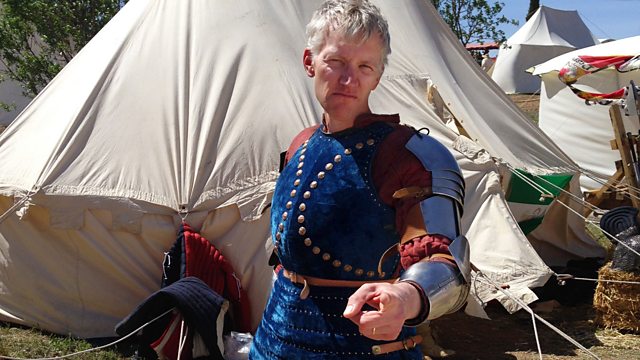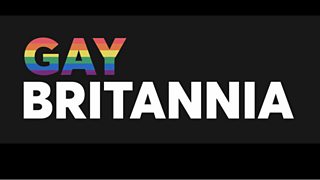Being Gay Before Gay Lib
Helen Castor and guests discuss what we know about coming out in Victorian Britain. How the 'gig' economy existed 200 years ago. And we mark an intellectual revolution on Tyneside.
Helen Castor takes the hot seat for the programme which shows why history matters.
Today, testimony about coming out before the decriminalisation of homosexuality in 1967 and what we know about the lives of gay people in Victoria's Britain.
Iszi Lawrence discovers that the 'gig' economy was widespread in the eighteenth and nineteenth centuries. And Tom Holland is on Tyneside to celebrate the history of a building which played host to an almost forgotten intellectual revolution.
Producer: Nick Patrick
A Pier production for �鶹�� Radio 4.
Last on
More episodes
Previous
Guests
Helen Castor is joined by the author of A Victorian Guide to Sex, and Reader in History at the University of Liverpool.
Polari, the language of gay oppression
Fifty years on from the decriminalisation of homosexuality, and comedian explain the history of Polari, the language of gay men who were, mostly, working in the entertainments industry.
The Eighteenth Century ‘gig economy’
Much is made in the media about the so-called ‘gig economy’, a way of earning income from a variety of freelance rolls. Most commonly, people refer to delivery workers or taxi drivers who will do shifts when they can earn some money and then maybe move on to another job. Financial insecurity has always blighted the lives of people who are un-skilled. But, today, there are skilled workers who derive their income from a variety of roles. This is a significant change from the days in which skilled people could have a good wage and a job for life. As told Iszi Lawrence this isn’t new. Indeed it seems that up to three quarters of the skilled workforce in the eighteenth century carried out a number of jobs to earn money.
From Newcastle to the world - the impact of the ‘Lit and Phil’

Tom Holland visits Newcastle Upon Tyne to visit a building that was at the heart of the Northumbrian Enlightenment at the end of the eighteenth century and the beginning of the nineteenth. is now the largest independent library outside London. It opened in 1825 but the society from which it takes its name dates from 1793 and was founded as a ‘conversation club’; a place where leading entrepreneurs, inventors, educationalists…etc… would meet to discuss matters of science and philosophy.
Tom met up with the Newcastle historian and a Senior Lecturer in Intellectual History at the University of Newcastle.
Making History is Produced by Nick Patrick and is a Pier Production for �鶹�� Radio 4.
��
��
��
��
Broadcasts
- Tue 25 Jul 2017 15:30�鶹�� Radio 4
- Fri 21 Sep 2018 23:25�鶹�� Radio 4
Featured in...
![]()
Gay Britannia
A season marking the 50th anniversary of the partial decriminalisation of gay sex.
Podcast
-
![]()
Making History
Popular history series where the past connects with the present.




